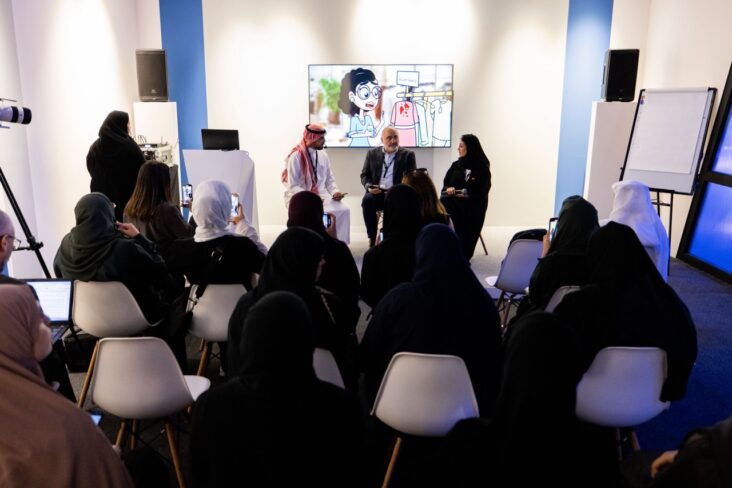Producing Healthy Content For Children Is A Noble Profession, Stress Experts At The IGCF 2024

Media and psychology experts emphasised that creating content for children is a noble profession, comparable to that of teachers and educational specialists. This profession plays a crucial role in instilling positive values, enhancing children’s skills and abilities, and helping them acquire new competencies. Moreover, it contributes to protecting them from negative phenomena such as bullying, stress, anxiety, and sexual abuse.
This was discussed during a session titled “The Future of Children’s Content: Between Competitiveness and Cultural Values,” featuring Dr. Fahda Bawazir, Senior Clinical Psychologist, and Shadi Shraiha, Co-Founder and CEO of Digitales Media, moderated by Saudi media professional Khalil Al-Fahd. The session was part of the second day of the 13th International Government Communication Forum (IGCF), organised by the Sharjah Government Media Bureau at the Expo Centre Sharjah under the theme “Agile Governments.. Innovative Communication.”
Ethical Values and Creative Skills
Dr. Fahda Bawazir highlighted the power of cartoons and animated films in instilling ethical and positive values in children, inspiring them to explore, think critically, set goals, and pursue their dreams. She emphasised the importance of selecting educational and entertaining content that opens doors to creativity and imagination, while supporting parents in teaching their children to make conscious decisions.
Dr. Bawazir also outlined a range of positive values and skills that children can learn from animated films and series, such as physical exercise, healthy diets, simple breathing techniques, basic first aid, calmness, time management, sportsmanship, and friendship. Furthermore, she stressed the importance of nurturing creativity, writing, and imagination, warning against the potential psychological harm and fear children might experience when exposed to inappropriate content.
Competition and Responsibility
Shadi Shraiha addressed the significant impact of animated films and series on children, underscoring the responsibility of content creators in an environment saturated with Western content. He pointed out that the animation industry in the Arab world is still emerging and referenced a study that found children’s screen time on social media had risen from 4.5 hours per day in 2019 to 5.5 hours in 2023.
Shraiha emphasised that content creators focused on quick profits are misguided, particularly when producing valuable content that reflects local stories and values. He stressed the importance of strategic thinking and collaboration between media outlets and children’s content creators. While quick profits might be tempting, long-term success will naturally follow if the content is enriching and beneficial, he noted.
Challenges and Solutions
Shraiha outlined several challenges faced by children’s content creators, such as striking a balance between engaging content and meaningful messaging within the limited attention span of children. Additionally, he pointed out the need to create scientifically accurate, technologically advanced content that keeps pace with the rapid advancements in augmented reality, where children can interact with story characters by scanning codes.
He also highlighted the importance of addressing children’s interests, helping them overcome challenges, and catering to the needs of children with disabilities. Shraiha expressed the hope that a platform which evaluates children’s content through a panel of experts in media, education, and psychology can be established.


